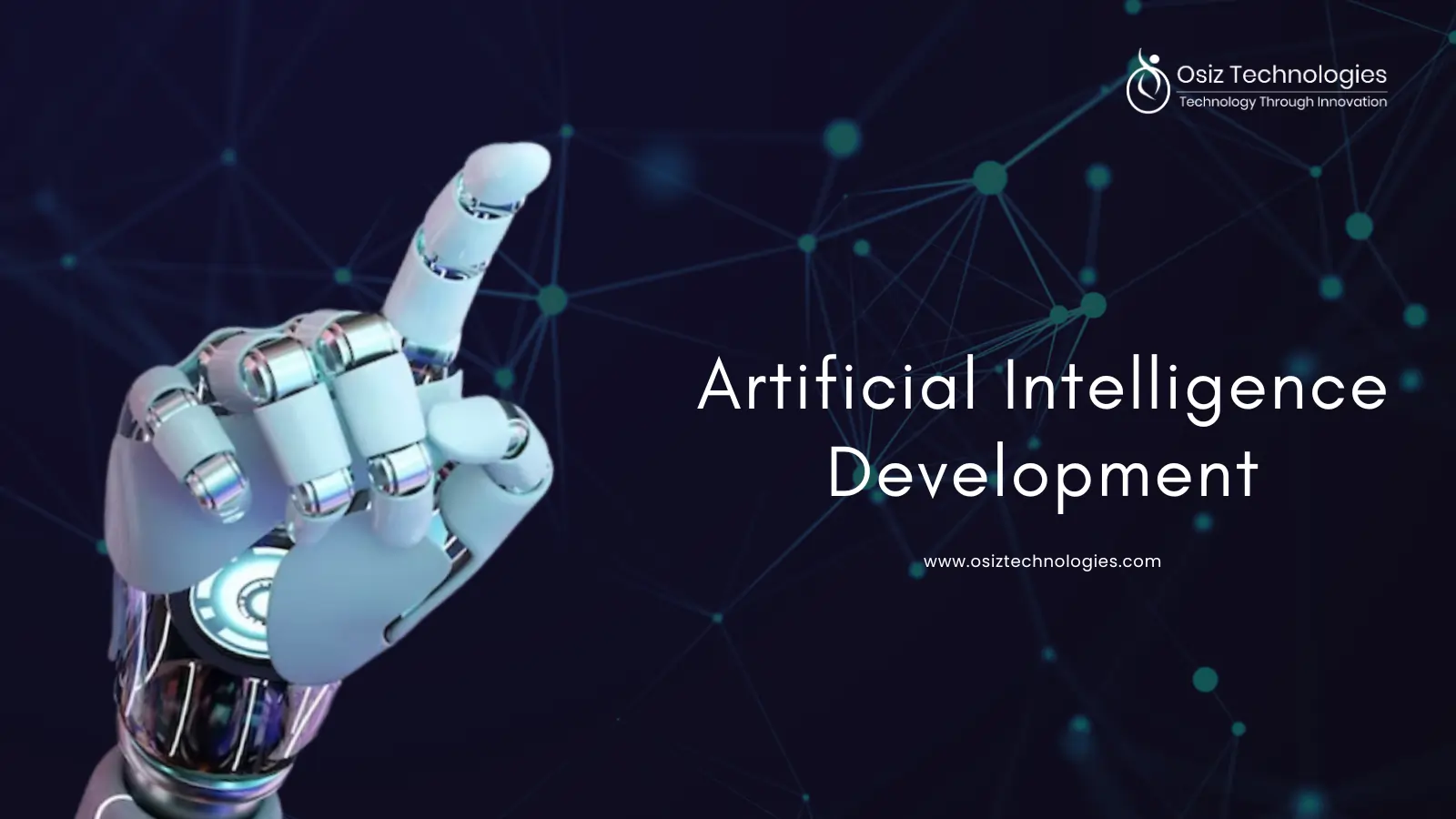In today's rapidly evolving world, the importance of artificial intelligence cannot be overstated. As businesses and organizations grapple with increasingly complex challenges, AI emerges as a critical tool for driving innovation, efficiency, and strategic decision-making.
Are you intrigued to know more? Then this blog will break it down for you to explore the transformative role of AI in decision-making processes and unveil the latest trends shaping the future landscape.
AI in Decision-Making
Artificial Intelligence (AI) in decision-making employs advanced algorithms and data analytics to optimize the process and provide valuable insights. By leveraging vast amounts of data, AI enables the automation of routine tasks, personalization of recommendations, and proactive risk management. Also, AI-powered decision support systems not only offer real-time insights to aid human decision-makers but also ensure adaptability and improvement over time with continuous learning algorithms. Overall, AI in decision-making enhances efficiency, innovation, and strategic advantage across industries.
Working Mechanism of Artificial Intelligence in Decision-Making
To put it in simple words, AI in decision-making operates through a multi-step process wherein data is collected, pre-processed, and analyzed using machine learning algorithms to derive insights, make predictions, and generate recommendations.
Data Collection and Predictive Analytics
In AI decision-making, data collection is a process of gathering several relevant information from many different sources is done. Once collected, this data is subjected to predictive analytics, where machine learning algorithms analyze historical data patterns to forecast future outcomes and trends. In this predictive analysis phase, AI systems can anticipate potential scenarios, identify opportunities, and mitigate risks, ultimately aiding in more informed and proactive decision-making.
Machine Learning Algorithms
Machine learning algorithms play a crucial role in analyzing data patterns and deriving insights to inform decisions. These algorithms, such as neural networks, decision trees, and support vector machines, are trained on historical data to recognize correlations and make predictions. By continuously learning from new data, machine learning algorithms adapt and improve over time, enhancing the effectiveness of decision-making processes.
Optimization Algorithms
In addition to the Machine Learning algorithm, comes the Optimization algorithm. This aims to find the most optimal solutions to complex problems by evaluating multiple variables and constraints. These algorithms, such as genetic algorithms, simulated annealing, and linear programming, systematically explore possible solutions to maximize or minimize objective functions. By efficiently navigating through solution spaces, optimization algorithms lead to cost-saving, and resource optimization and improve the accuracy of the decision-making.
Types of AI Decision Support Systems
AI decision support systems (DSS) come in various forms, each tailored to specific decision-making contexts and requirements. Here are some common types:
-
Expert Systems: Expert systems mimic the decision-making capabilities of human experts in specific domains by encoding their knowledge into a set of rules or heuristics. These systems provide recommendations or solutions based on input data and predefined rules.
-
Decision Trees: Decision trees are a type of machine learning algorithm that organizes decisions into a hierarchical structure resembling a tree. Decision trees are useful for classification and regression tasks, where decisions need to be made based on multiple input variables.
-
Neural Networks: A neural network is a class of machine learning algorithms built based on the functioning of a human brain. This comprises interconnected nodes, where every neuron processes input data and passes it to the next layer.
-
Genetic Algorithms: Genetic algorithms process natural selection by using the principles of evolution, such as mutation, crossover, and selection, to search for optimal solutions to complex problems.
-
Fuzzy Logic Systems: Fuzzy logic systems handle uncertainty and imprecision in decision-making by allowing variables to have degrees of truthfulness between 0 and 1. This logic is commonly used in control systems and decision-making applications where precise inputs are not available.
Benefits Of Artificial In Decision-Making
There are numerous benefits of utilizing AI in decision-making across various domains. Here are some key advantages:
-
Data-Driven Insights: AI can analyze vast amounts of data quickly and efficiently, providing valuable insights that may not be apparent through traditional analysis methods.
-
Predictive Analytics: AI algorithms can forecast future trends and outcomes based on historical data patterns. By leveraging predictive analytics, organizations can anticipate potential scenarios and make proactive decisions to capitalize on opportunities or mitigate risks.
-
Optimization and Efficiency: AI-powered optimization algorithms can streamline processes and improve efficiency by identifying the most optimal solutions to complex problems. This leads to cost savings, resource optimization, and better resource allocation.
-
Personalization: AI enables personalized decision-making by analyzing individual preferences, behaviors, and historical interactions. This personalization enhances customer experiences, tailoring products, services, and recommendations to meet specific needs and preferences.
-
Automation of Routine Tasks: AI can automate routine decision-making tasks, freeing up human resources to focus on more complex and strategic activities. This automation reduces human error, speeds up processes, and increases overall productivity.
-
Enhanced Decision Support Systems: AI-powered decision support systems provide real-time insights, recommendations, and forecasts to aid human decision-makers. These systems augment human intelligence, helping users make more informed and timely decisions.
-
Risk Management: AI can identify and mitigate risks by analyzing data patterns and detecting anomalies or potential threats. This proactive approach to risk management enables organizations to minimize losses and safeguard against unforeseen events.
-
Scalability: AI systems can scale to handle large volumes of data and decision-making tasks, making them suitable for businesses of all sizes. Whether it's processing customer inquiries, analyzing market trends, or optimizing supply chains, AI can adapt to meet growing demands.
The Future Of AI in Decision-Making
In the future, AI will continue to revolutionize decision-making processes across industries, offering unprecedented efficiency, accuracy, and adaptability. With advancements in explainable AI and ethical considerations, AI systems will become more transparent and accountable, fostering trust and acceptance. Collaborative human-AI interactions will become the norm, leading to synergistic partnerships where AI augments human intelligence rather than replacing it entirely. Overall, the future of AI in decision-making holds the promise of a more intelligent, responsive, and user-centric approach to solving complex problems and driving innovation.
Final Thoughts
As AI continues to evolve, staying informed about the latest advancements and trends in AI decision-making will be essential for businesses and organizations seeking to leverage its transformative potential. To stay updated on these intriguing AI trends, consider connecting with Osiz Technologies. As a leading AI development company, we keep tabs on extensive cutting-edge technology. Whether it's harnessing data-driven insights, implementing machine learning algorithms, or optimizing decision-making processes with AI-driven solutions, Osiz can provide the expertise and support needed to navigate the rapidly evolving landscape of AI technology.
Listen To The Article
Recent Blogs

X-Mas 30%
Offer











